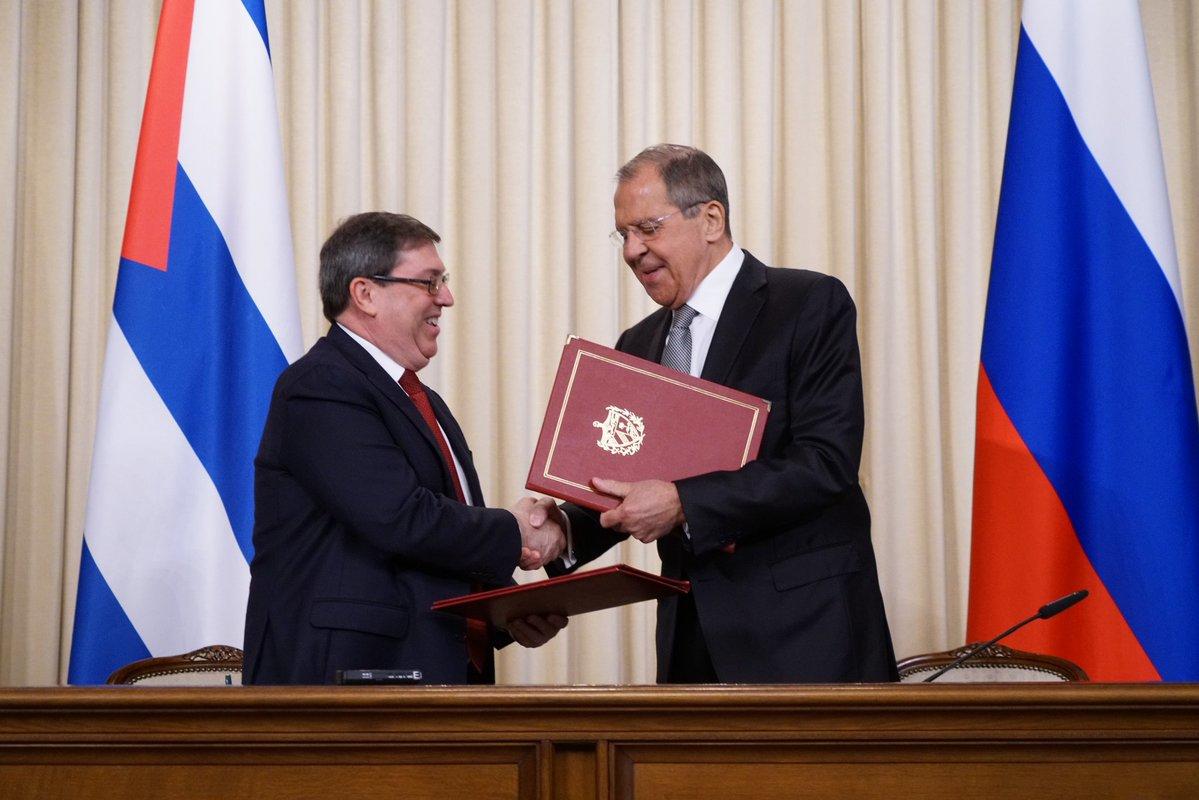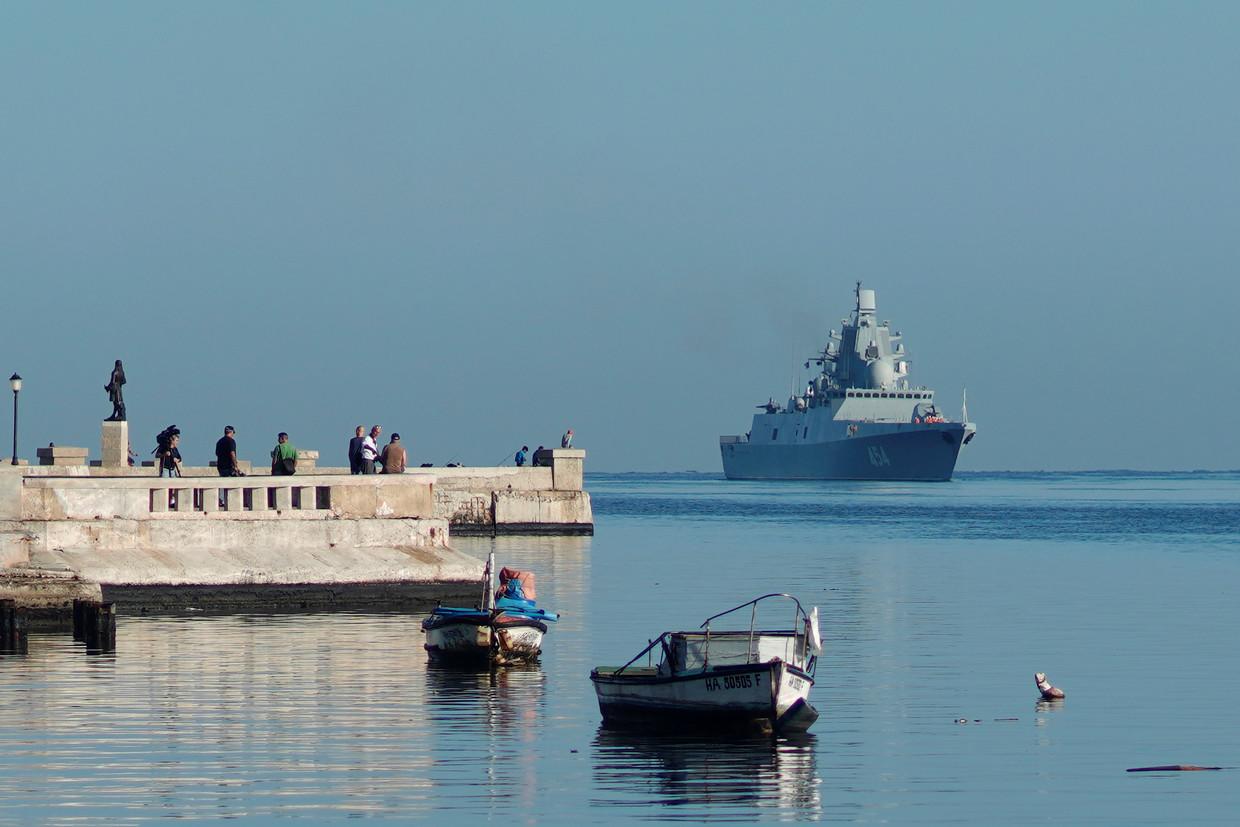While on a tour of Latin America, and ahead of a BRICS ministerial meeting set for Rio de Janeiro, Russian Foreign Minister Sergey Lavrov visited Cuba Wednesday, where he pledged continued economic and military support against Cuba’s “external threats”. Talks with Cuban officials also focused heavily on the ongoing crisis in Venezuela, given both countries are staunch allies of President Nicolas Maduro’s government.
“Our policy towards Cuba is that we shall support Cuba’s people not only politically, not only morally, not only by means of developing military technical cooperation but also through encouraging trade and economic projects to help that country’s economy become more resistant to all kinds of external threats,” he said.

Lavrov met with his Cuban counterpart, Bruno Rodriguez Parrilla, a month after a Russian warship stopped in Cuba — a mere one hundred miles off the American coast — to build up joint military relations between the two countries. It was at the end of June that the Kalibr missile-armed frigate Admiral Gorshkov entered the port of Havana.
During that prior exercise Russian Deputy Foreign Minister Sergei Ryabkov grabbed headlines when he slammed US build-up of its weapons systems in Europe by invoking comparisons to the 1962 Cuban missile crisis.
“We could find ourselves in a situation where we have a rocket crisis close not just to the crisis of the 1980s but close to the Caribbean crisis,” Ryabkov had stated at the time while using the standard Russian term for the Cuban missile crisis.
In the days prior to the Wednesday Russian state visit to Cuba, Ryabkov had also called on the international community to free itself from a purely US-controlled international financial system and US dollar dominance.
“We must protect ourselves from political abuses made with the help of the US dollar and the American banking system,” he said Sunday addressing a ministerial meeting of the Non-Aligned Movement held in Venezuela, according to TASS. “We must turn our dependence in this sphere into independence,” he added.
“Let us be multipolar in the spheres of finance and currency,” he said.
The senior diplomat was specifically addressing US-led sanctions and the tightening economic noose, including a near total oil export blockade, on the Maduro government in Caracas. He also no doubt had in mind the decades long embargo on Cuba which reaches back far into the Cold War.
In April the White House actually increased sanctions on Cuba, including further limiting travel of US citizens to the island and a new cap on remittances “at $1,000 per person every three months” (compared to unlimited remittances allowed for under the Obama administration), among other measures to squeeze the Cuban economy, already severely hurting due to the oil embargo on nearby Venezuela, on which Havana is substantially dependent to meet energy needs.

The Russian officials’ comments also come after early this year the Maduro regime was stymied in its bid to pull $1.2 billion worth of gold out of the Bank of England, according to a January Bloomberg report. The Bank of England’s (BoE) decision to deny Maduro officials’ withdrawal request was a the height of US coup efforts targeting Maduro.
Specifically top US officials, including Secretary of State Michael Pompeo and National Security Adviser John Bolton, had lobbied their UK counterparts to help cut off the regime from its overseas assets, as we reported at the time. Washington has further lobbied other international institutions, and especially its Latin American allies, to seize Venezuelan assets and essentially hold them for control of Juan Guaido’s opposition government in exile.
Deputy FM Ryabkov in his Sunday comments held up the Venezuela situation as an example of “barefaced misappropriation of assets kept at Western banks.”
He described further:
“This is just one of the examples of a wider policy of deliberate instigation of crises to change government, to replace legitimately elected politician with American stooges.”
Despite western capitals virtue-signaling their “rules-based order” approach, Ryabkov said instead, “We think that it is not a rule-based world order, it is rather a foisted and imposed world order.”
Meanwhile, the establishment of the ‘SWIFT-alternative’ Instex – now online as of three weeks ago – constitutes the biggest threat the dollar as a reserve currency to date, especially if Russia follows through on its prior signalling that it could take the bold step of joining.
via ZeroHedge News https://ift.tt/2McFfB5 Tyler Durden